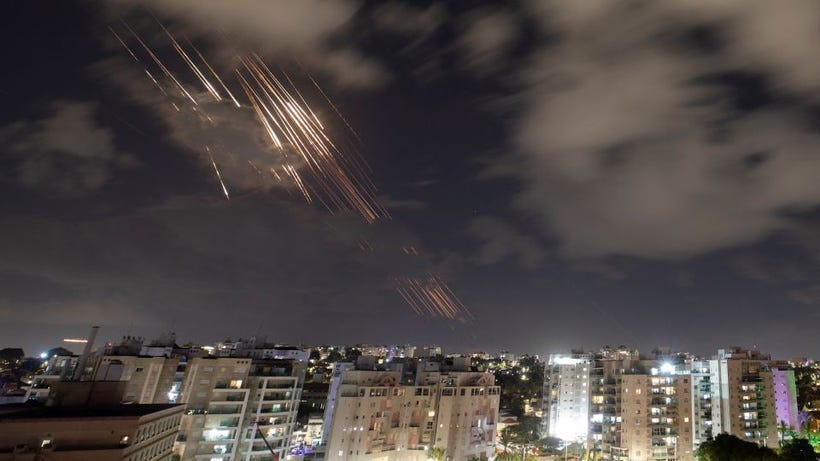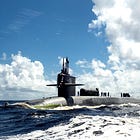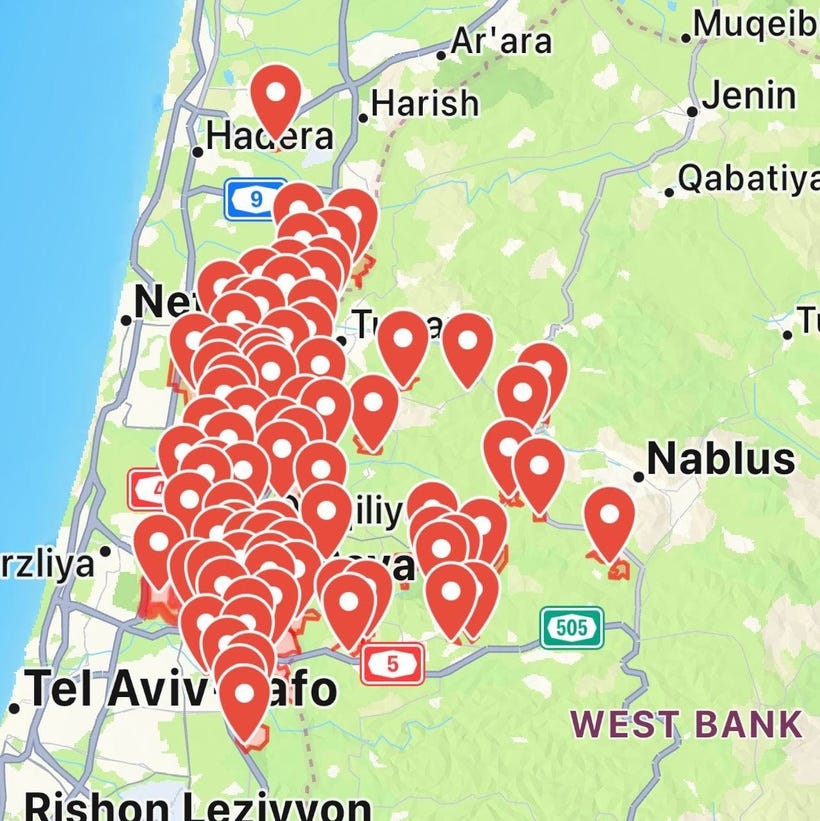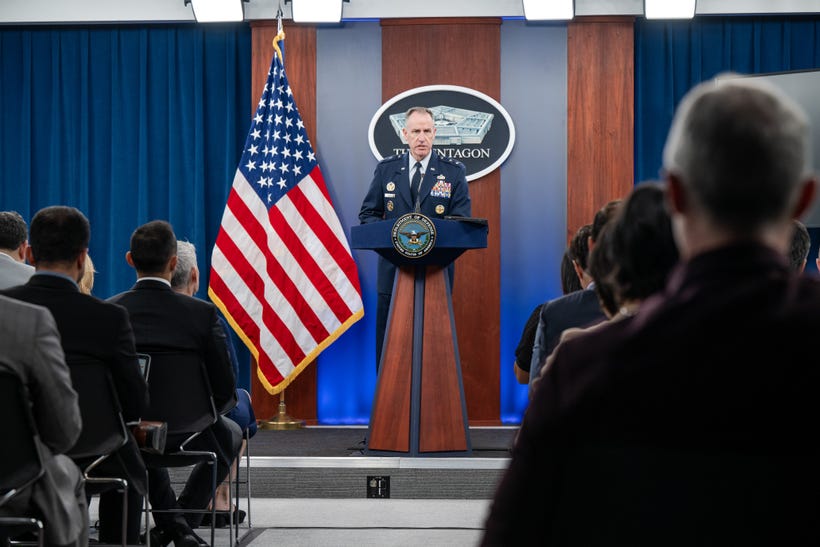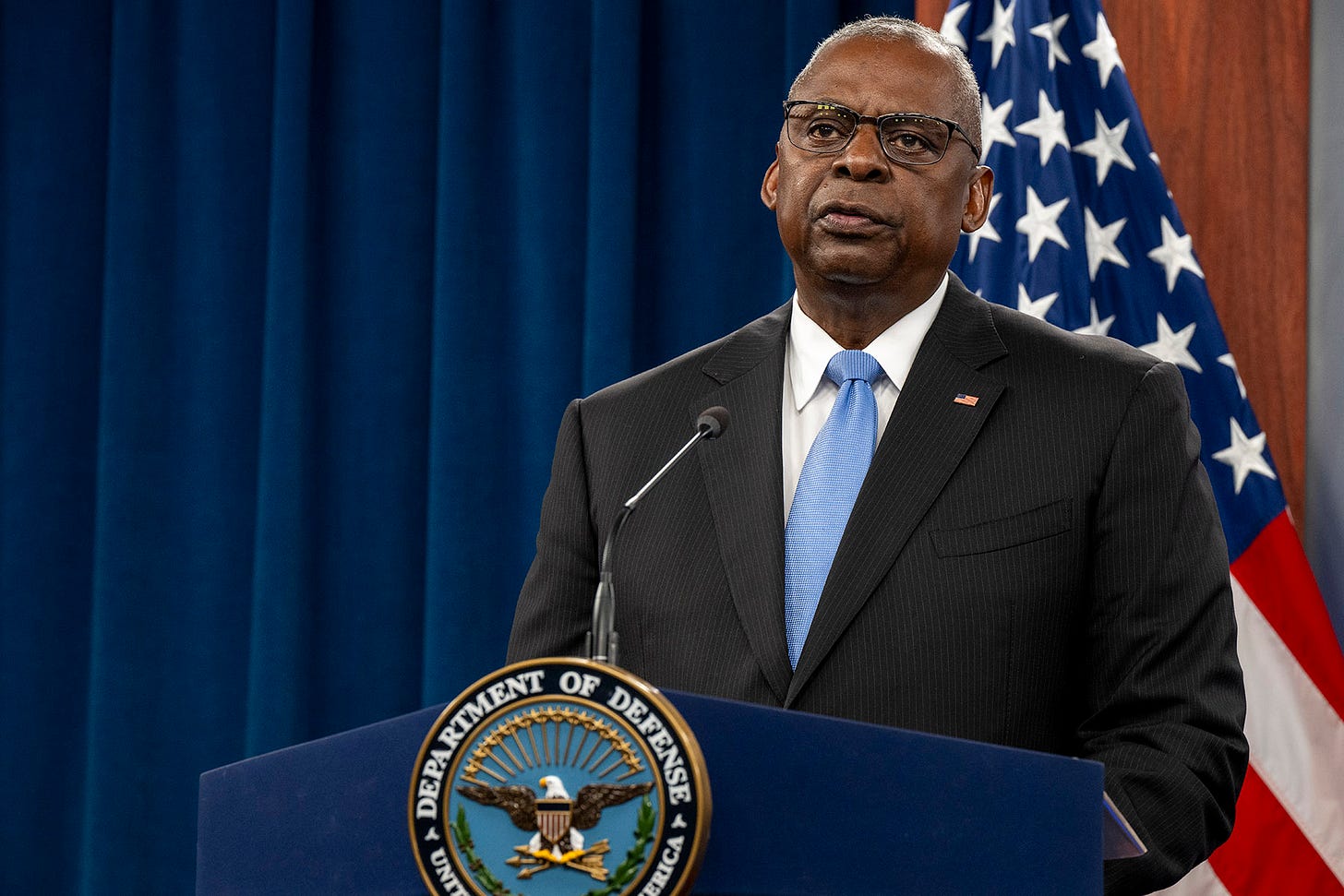Iran: If Israel Responds To Missile Attacks, Response Will Be Worse. US Aids Israel In Intercepting Missiles From Tehran, Enhances Defense Posture
The Iranian Revolutionary Guard Corps (IRGC) said that they used hypersonic Fattah missiles during the strike for the first time which travel at speeds five times the speed of sound.
TEHRAN - After Iran launched an attack on Israel with hundreds of ballistic missiles, it said that if Israel responds in retaliation, the next attack will be more harsh, adding that if its "crimes" continue it will also respond more severely.
Israeli Prime Minister Benjamin Netanyahu said after the missile strike, which Tehran said struck military targets, including radar bases, that Iran made a "big mistake" and said "Whoever attacks us, we attack them".
The Iranian Revolutionary Guard Corps (IRGC) said that they used hypersonic Fattah missiles during the strike for the first time which travel at speeds five times the speed of sound, though U.S. President Joe Biden called the attack “defeated and ineffective” and said “Make no mistake, the United States is fully, fully, fully supportive of Israel" and promised "severe consequences" for the attack.
The U.S. Department of Defense reported that Iran had launched over 200 ballistic missiles toward Israel, adding that most of the missiles were destroyed before reaching their target, but that some successfully hit their targets "causing minimal damage".
Pentagon Press Secretary Air Force Maj. Gen. Pat Ryder said, "We condemn these reckless attacks by Iran, and we call on Iran to halt any further attacks, including from its proxy forces".
"During the attack, the U.S. military coordinated closely with the Israeli Defense Forces to help defend Israel."
According to the Pentagon the attack was nearly twice the scope of the Iranian missile and drone attack on Israel April 13th and 14th of this year, during which U.S. forces also aided Israel in intercepting ballistic missiles from Iran.
A Pentagon statement said, "Two Arleigh Burke-class destroyers, the USS Cole and USS Bulkeley, both deployed in the Eastern Mediterranean, fired a dozen interceptors at incoming Iranian ballistic missiles as part of defending Israel."
Ryder added, however, that it is unknown at this time if any of the interceptors actually took down any of the missiles being fired at Israel, which were fired directly from Iran and not its proxy states.
"You don't launch that many missiles at a target without the intent of hitting something," Ryder stated, adding. "Just like the last time, their intent is to cause destruction. And so, fortunately ... Israel has very significant air defense capabilities, and the U.S., of course, played a role in helping on that front as well."
According to the Pentagon, "Initial indications, Ryder said, are that there was minimal damage on the ground and Israel was able to defend itself against the Iranian attack successfully. "
"No U.S. personnel were injured or harmed during the Iranian missile attack."
Ryder said that Secretary of Defense Lloyd J. Austin III communicated with Israeli Defense Minister Yoav Gallant at least twice, both before the attack and during the attack.
"He reaffirmed the United States ironclad commitment to the defense of Israel and underscored that the U.S. remains well-postured throughout the Middle East region to protect U.S. forces and defend Israel in the face of threats from Iran and Iran-backed terrorist organizations," Ryder added.
The Iranian Revolutionary Guard Corps (IRGC) said that they launched dozens of missiles at Israel, hitting “important military targets” according to Iran’s state media.
The IRGC released a statement that said, “In response to the martyrdom of Ismail Haniyeh, Hassan Nasrallah and IRGC commander Abbas Nilforushan, we targeted the heart of the occupied territories”.
The Syrian Human Rights Watch stated that U.S. military air defenses in Koniko and al-Tanf in Syria intercepted and destroyed Iranian missiles.


